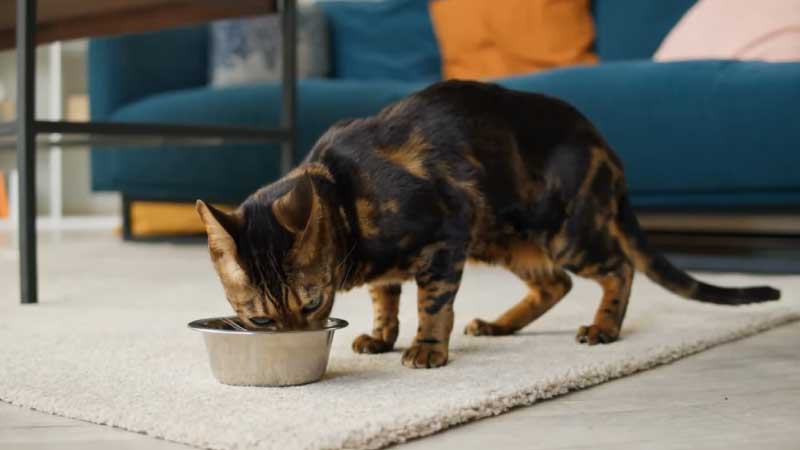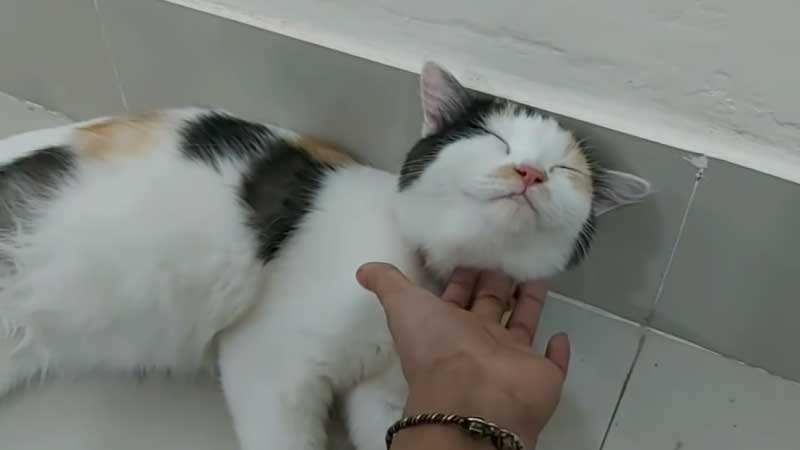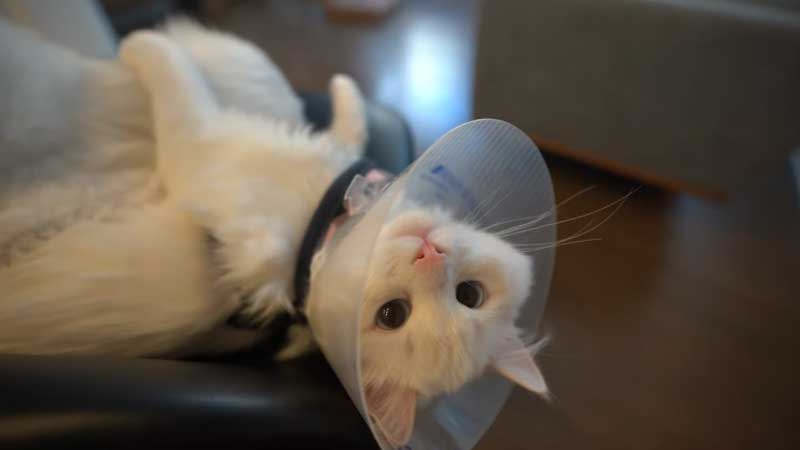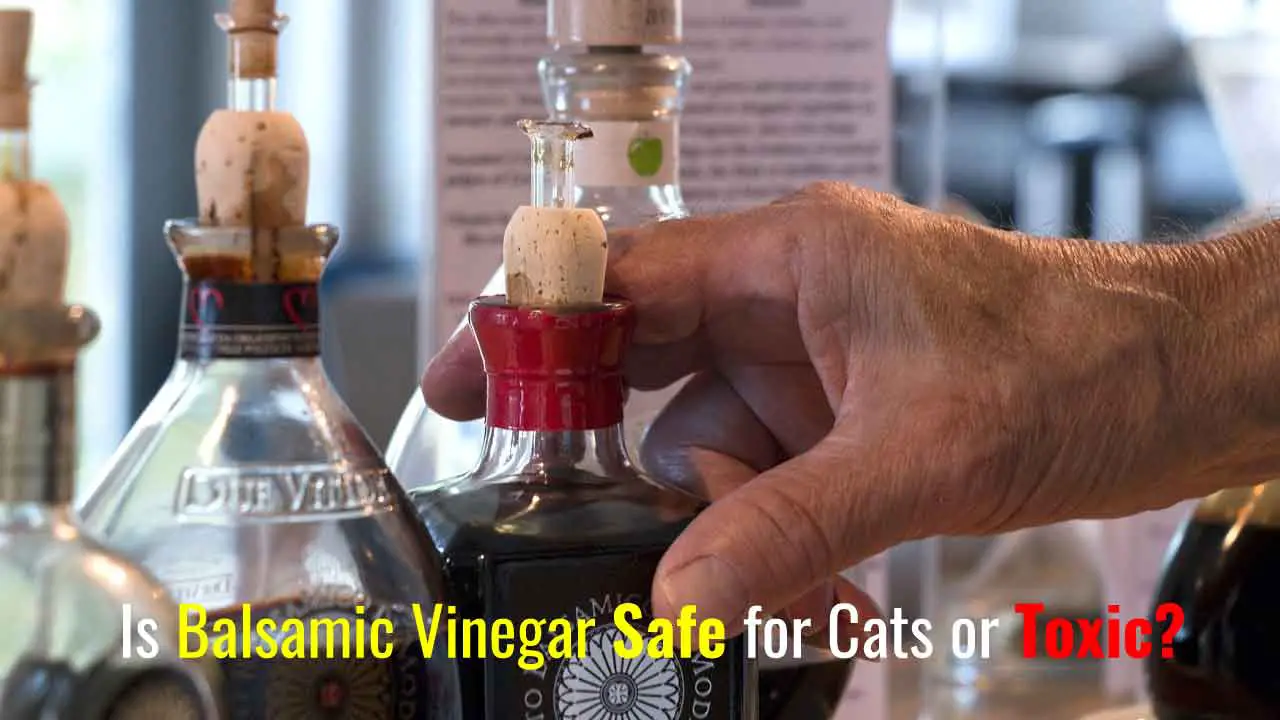Raise your hand if you’ve ever had to deal with a frustrated kitty and their not-so-pleasant periods of diarrhea.
Ah, the joys of pet parenting! But here’s a question for you: Have you ever wondered if what you feed your cat could be causing their stomach troubles? You’re not alone, my friend! Many cat owners have wondered the same thing: Can wet food cause diarrhea in cats?
The answer is yes; wet cat food can cause your cat’s diarrhea for several reasons. Some of the key reasons are sudden dietary changes, spoiled food, the richness of the food, and food intolerance. These things can disrupt your cat’s digestive system and lead to diarrhea.
Hold up as we embark on a journey to uncover whether wet food is responsible for this diarrhea.
- Can Wet Food Cause Diarrhea In Cats?
- Why Might Wet Cat Food Cause Diarrhea: 4 Key Reasons
- Benefits of Wet Cat Food
- Why Do Cats Get Diarrhea? Know the Main Causes
- What to Do if Your Cat Has Diarrhea: 10 Essentials You Should Keep In Mind
- FAQs
- Can I mix wet and dry cat food?
- Is All Wet Food the Same?
- How do I introduce wet food to my cat’s diet?
- Is diarrhea a common side effect of changing cat foods?
- Should I consult a vet if my cat has diarrhea?
- Are there specific ingredients in wet food known to cause diarrhea?
- How often should I feed my cat wet food?
Can Wet Food Cause Diarrhea In Cats?

While wet food is an essential part of many cats’ diets, offering various benefits such as higher water content and often higher protein levels, there’s always the looming question: Can wet food cause diarrhea in cats? Let’s dive deep into this topic and understand the nuances.
Let’s First Understand Wet Cat Food
Before investigating its potential to cause diarrhea, it’s essential to understand what constitutes wet cat food:
Wet cat food typically comprises meat (or meat by-products) combined with grains, vegetables, and essential vitamins and minerals. The high moisture content is one of its primary features, making it beneficial for cats’ hydration. Various types of wet cat foods are available on the market, from pates to chunks in gravy.
Why Might Wet Cat Food Cause Diarrhea: 4 Key Reasons

Several reasons can cause diarrhea in your cat. The leading 4 causes we have discussed in detail.
Sudden Dietary Changes: One of the leading causes of diarrhea when introducing wet food is a sudden change in diet. If a cat is used to dry pellets and suddenly receives wet food without an adjustment stage, it might upset their digestive system, leading to loose stools.
Food Intolerance: Just as with any food type, some cats might be intolerant to certain ingredients in specific wet food brands or varieties.
Spoiled Food: Wet cat food has a shorter shelf life than dry food, especially once opened. If it’s not stored properly or is left out for too long, it can spoil and lead to digestive issues if consumed.
Richness of Food: Some wet cat foods are richer than others. If a cat’s system isn’t accustomed to this, it can result in diarrhea.
Benefits of Wet Cat Food

While there are potential causes of diarrhea associated with wet food, it’s essential to recognize its benefits:
- Hydration: Many cats aren’t avid drinkers. Given the high moisture content in wet food, it assists in keeping them hydrated.
- Nutrition: Wet cat food can often be more nutritionally dense than its dry counterparts.
- Taste: Many cats prefer the taste and texture of wet food over dry kibble.
Why Do Cats Get Diarrhea? Know the Main Causes

Cat diarrhea can signify various issues, from minor dietary indiscretions to more severe underlying health conditions. Here’s a detailed exploration of the potential causes:
Dietary Changes and Indiscretions
One of the most common causes of diarrhea in cats is a sudden change in their diet. Cats have sensitive stomachs, and any abrupt transition from one type of food to another can lead to digestive upsets. This includes instances when cats consume something they shouldn’t, like table scraps or overseas objects.
Food Sensitivities and Allergies
Just like humans, cats can have food sensitivities or allergies. Some cats might be intolerant to specific ingredients in their food, causing them to experience digestive issues. Common allergens include specific proteins like fish, chicken, or beef.
Infections and Parasites
Bacterial, viral, and parasitic infections can lead to diarrhea in cats. Common parasites affecting cats include roundworms, tapeworms, and giardia. Regular deworming and maintaining a clean environment can help reduce the risk of parasitic infections.
Medications and Drugs
Some medications prescribed for other conditions can have diarrhea as a side effect. If you suspect a medication is causing your cat’s diarrhea, consult with your veterinarian.
Underlying Health Conditions
Certain health conditions, such as hyperthyroidism, inflammatory bowel disease (IBD), or pancreatitis, can manifest as diarrhea in cats. It’s crucial to consult with a veterinarian if diarrhea persists, as it might be indicative of a more severe health issue.
Toxins and Poisons
If cats ingest toxic substances, it can lead to diarrhea, among other symptoms. Common toxins include certain plants, antifreeze, or household cleaners. Always ensure that potential toxins are out of your cat’s reach, and be cautious of plants and substances brought into the home.
Stress and Behavioral Factors
Believe it or not, stress can also cause diarrhea in cats. Changes in the environment, like moving to a new home, the introduction of a new pet, or even a new person, can lead to stress-induced diarrhea in sensitive cats.
Preventing Diarrhea When Introducing Wet Food
Gradual Introduction: When introducing wet food to a cat’s diet, do it gradually. Start by mixing a small amount of wet food with their usual dry food, increasing the wet food proportion over a week.
Monitor Expiry Dates: Always check the expiration date on wet food cans or pouches. Once opened, ensure you store it as per the instructions, usually in the refrigerator, and use it within the recommended time.
Choose Quality Brands: Investing in reputable cat food brands with high-quality ingredients is worth investing in.
What to Do if Your Cat Has Diarrhea: 10 Essentials You Should Keep In Mind

Diarrhea may arise due to various reasons, from a minor dietary mistake to an underlying health condition. Regardless of the cause, taking swift action is essential to ensure your feline’s well-being. Here’s a step-by-step guide to what to do if your cat has diarrhea:
Remain Calm
Remember that occasional diarrhea might result from a minor stomach upset and may resolve independently. Overreacting can stress both you and your cat, exacerbating the issue.
Monitor the Situation
Identify if it’s slightly soft, watery, or has blood/mucus. Track how often your cat uses the litter box. An increase in frequency is a crucial sign. Notice if your cat is lethargic, vomiting, or showing signs of discomfort.
Consider Dietary Causes
Remember if you’ve recently changed your cat’s diet or if they might’ve eaten something unusual. Consider fasting your cat for 12-24 hours (always provide water) to allow the digestive system to reset. Always consult with a vet before doing this.
Keep Your Cat Hydrated
Ensure your cat has access to clean, fresh water at all times. Consider giving your cat an electrolyte solution to combat dehydration. Consult your vet for recommendations.
Implement a Bland Diet
Offer small amounts of plain boiled chicken or turkey. These can act as binding agents and be mixed with the boiled meat in small amounts. Some brands offer specialized foods for digestive issues; you should consider them.
Avoid Giving Over-the-Counter Medications
Never give your cat human medications unless specifically instructed by a vet. It’s crucial not to make assumptions about your cat’s health and give medicines based on those assumptions.
Clean the Litter Box Regularly
Ensure the litter box is clean to prevent any further infections or complications. Regular cleaning will also allow you to closely monitor the consistency and frequency of your cat’s stools.
Consult Your Veterinarian
Provide a detailed overview of your cat’s symptoms, behavior, and potential triggers. Your vet might recommend specific treatments, dietary changes, or tests.
Follow the Veterinarian’s Instructions
Administer any prescribed medication as directed. Stick to the recommended diet until your vet advises otherwise.
Monitor Your Cat’s Progress
Note down any changes in stool consistency, frequency, or general behavior. If the issue persists, schedule follow-up appointments with your vet.
FAQs
Can I mix wet and dry cat food?
Yes, mixing wet and dry cat food can provide a balanced diet and ease the transition between the two. However, ensure the combination meets your cat’s nutritional needs.
Is All Wet Food the Same?
Though they might seem similar, not all wet foods are created equal. Their nutrition and other values are quite different for each brand.
Branded vs. Generic
Brand reputation can be indicative of quality. While ordinary options might be budget-friendly, they may not offer the best nutritional value.
Homemade Wet Food
Some cat owners opt for homemade solutions, giving them control over the ingredients. However, this requires careful consideration to ensure a balanced diet.
How do I introduce wet food to my cat’s diet?
Gradually. Start by mixing a small amount of wet food with their usual diet, increasing the wet food proportion over several days to monitor any reactions.
Is diarrhea a common side effect of changing cat foods?
The answer is sometimes yes. Sudden changes in diet can upset a cat’s stomach, leading to diarrhea. Always transition slowly to reduce this risk.
Should I consult a vet if my cat has diarrhea?
Absolutely. It is crucial to consult a veterinarian if diarrhea persists or is present along with other symptoms.
Are there specific ingredients in wet food known to cause diarrhea?
Some cats may be sensitive to particular proteins or additives in their food. But we always recommend that you read the label and monitor your cat’s reaction after introducing any new foods.
How often should I feed my cat wet food?
It depends on the cat’s age, size, and specific needs. It’s best to follow the feeding guidelines on the food label or consult with your personal vet for suggestions.

Final Verdict
It is important to note that every cat is unique and may react differently to different types of cat food. If your cat experiences diarrhea after consuming wet food, it may be worth considering switching to a different brand or type of food to see if the symptoms improve. Additionally, maintaining good hygiene practices when handling and storing wet food can help minimize the risk of bacterial contamination.




